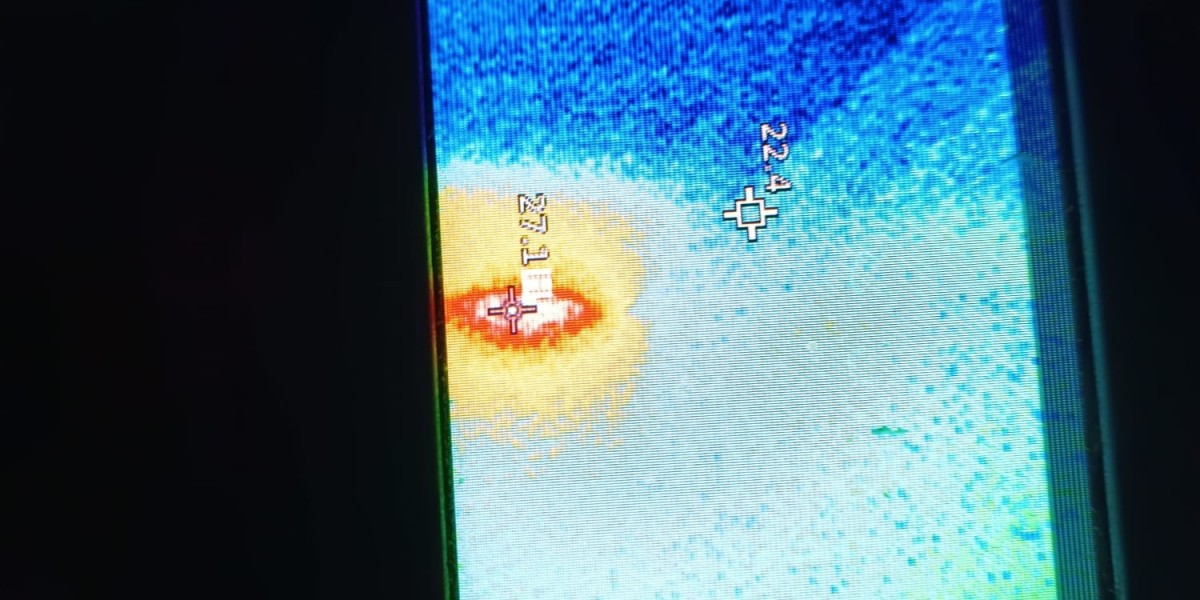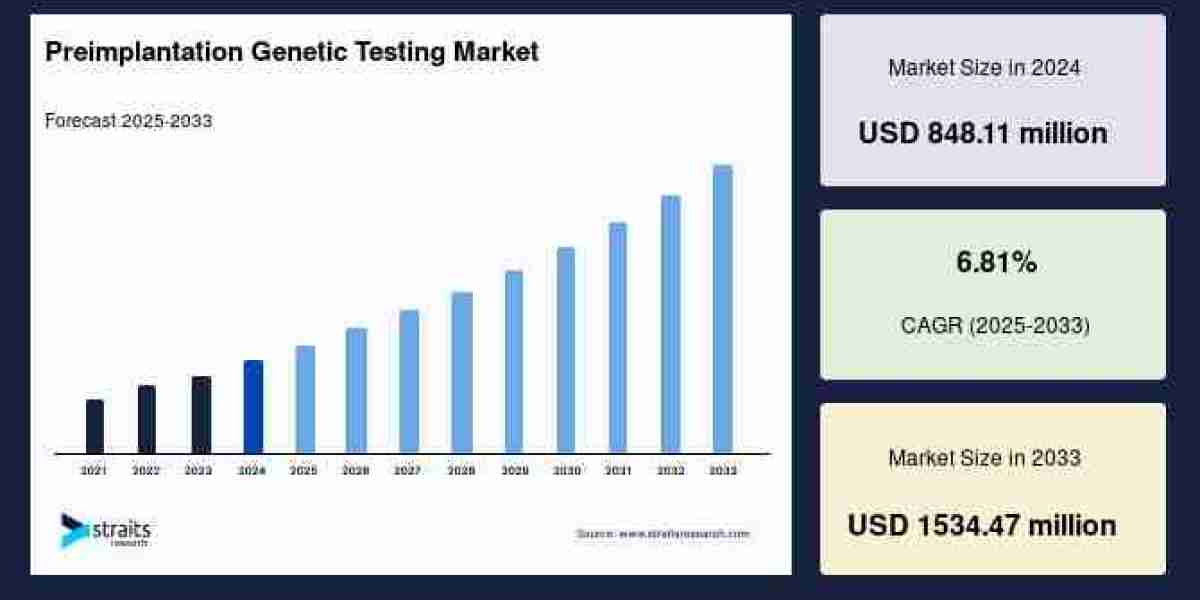The Point-of-Care (POC) Diagnostics Market focuses on medical diagnostic testing conducted at or near the site of patient care. This market is driven by the need for rapid diagnosis and treatment, enabling immediate clinical decisions. POC diagnostics encompass a variety of tests, including glucose monitoring, infectious disease testing, and cardiac markers, among others.
The global point-of-care diagnostics market share was valued at USD 53.11 Billion in 2024. Looking forward, IMARC Group estimates the market to reach USD 102.4 Billion by 2033, exhibiting a CAGR of 7.6% during 2025-2033. North America currently dominates the market in 2024. The increasing demand for faster and more convenient diagnostic solutions, rising prevalence of infectious diseases across the globe, and advancements in technology and miniaturization represent some of the key factors driving the market.
Request to Get the Sample Report: https://www.imarcgroup.com/point-of-care-diagnostics-market/requestsample
Key Trends
- Technological Advancements: Innovations in microfluidics, biosensors, and mobile health technologies are enhancing the accuracy and speed of POC diagnostic tests.
- Increased Demand for Home Healthcare: The rising trend of home healthcare services is propelling the demand for POC diagnostics, allowing patients to undergo tests conveniently at home.
- Growing Prevalence of Chronic Diseases: The increasing incidence of chronic diseases such as diabetes and cardiovascular conditions is driving the need for regular monitoring through POC devices.
- Regulatory Support: Governments and health organizations are providing support and guidelines for the development and approval of POC diagnostic devices, facilitating market growth.
- Integration with Telemedicine: The integration of POC diagnostics with telehealth services is becoming more common, enabling remote monitoring and consultations, particularly post-COVID-19.
Market Dynamics
- Drivers:
- Need for Rapid Diagnosis: The demand for quick and accurate diagnostic results is driving the adoption of POC testing, especially in emergency and critical care settings.
- Cost-Effectiveness: POC diagnostics can reduce the overall cost of healthcare by minimizing the need for laboratory visits and hospital stays.
- Challenges:
- Regulatory Hurdles: Navigating the regulatory landscape for POC diagnostics can be complex and time-consuming, potentially slowing down market entry for new products.
- Quality Control Concerns: Ensuring the accuracy and reliability of POC tests is crucial, as inaccuracies can lead to misdiagnosis and inappropriate treatment.
- Opportunities:
- Emerging Markets: There is significant growth potential in emerging economies where access to traditional laboratory testing may be limited.
- Collaboration and Partnerships: Collaborations between diagnostic manufacturers, healthcare providers, and technology companies can lead to innovative solutions and expanded market reach.
Factors Affecting the Growth of the Point-of-Care Diagnostics Industry:
Rapid Technological Advancements in Point-of-Care Diagnostics: The field of point-of-care (POC) diagnostics is evolving rapidly, fueled by breakthroughs in microfluidics, biosensors, and portable testing devices. These innovations allow healthcare professionals to perform quick and accurate tests directly at the patient’s location, minimizing reliance on centralized laboratories. The growing integration of digital technologies, such as smartphone-based diagnostic tools and cloud-connected platforms, is further enhancing the accessibility and efficiency of these systems. By enabling real-time data analysis and remote monitoring, these solutions are transforming how chronic and infectious diseases are managed. Another notable advancement is the development of lab-on-a-chip technology, which allows multiple tests to be conducted simultaneously on a compact device. This miniaturization not only speeds up diagnostic processes but also makes testing more affordable and accessible, especially in remote or resource-limited settings. Together, these technological strides are paving the way for more efficient, patient-centered healthcare delivery.
Growing Prevalence of Chronic and Infectious Diseases: The rising burden of chronic and infectious diseases worldwide is a major factor driving demand for point-of-care diagnostics. Conditions such as diabetes, cardiovascular disorders, and respiratory illnesses require regular monitoring, which POC devices can deliver conveniently and efficiently. These tools enable early detection and real-time tracking of disease markers, helping physicians and patients make timely and informed decisions about treatment and care. Additionally, the increasing incidence of infectious diseases—such as COVID-19, influenza, and HIV—has reinforced the importance of rapid diagnostic solutions. POC diagnostics enable swift identification and monitoring of infections, which is crucial for controlling outbreaks and preventing community transmission. As healthcare systems continue to focus on early detection and prevention, the role of point-of-care testing is becoming more indispensable.
Increasing Demand for Home-Based Healthcare: The growing preference for home-based healthcare is another significant trend boosting the POC diagnostics market. Aging populations, along with the rising prevalence of chronic diseases, are driving demand for convenient and accessible healthcare solutions that minimize hospital visits. Portable and user-friendly diagnostic devices empower patients to monitor their health at home, leading to improved comfort, reduced medical costs, and better adherence to treatment regimens. Furthermore, advancements in telehealth and remote patient monitoring are enhancing the effectiveness of home-based diagnostics. Patients can now share real-time test results with healthcare providers, enabling continuous oversight and timely interventions. As healthcare becomes increasingly digital and patient-driven, the combination of point-of-care testing and home-based care is expected to play a transformative role in the future of global healthcare.
Point-of-Care Diagnostics Market Report Segmentation:
By Product Type:
- Blood-Glucose Monitoring Kit
- Cardio-Metabolic Monitoring Kit
- Pregnancy and Fertility Testing Kit
- Infectious Disease Testing Kit
- Cholesterol Test Strip
- Hematology Testing Kit
- Others
Blood-glucose monitoring kit represented the largest segment due to the high prevalence of diabetes and the necessity for regular blood sugar monitoring.
By Platform:
- Lateral Flow Assays
- Dipsticks
- Microfluidics
- Molecular Diagnostics
- Immunoassays
Lateral flow assays accounted for the largest market share due to their simplicity, rapid results, and widespread application in various diagnostic tests.
By Prescription Mode:
- Prescription-Based Testing
- OTC Testing
Prescription-based testing represented the largest segment due to the accuracy and reliability required for medical diagnosis and treatment.
By End-User:
- Professional Diagnostic Centers
- Home Care
- Research Laboratories
- Others
Professional diagnostic centers constituted the largest segment owing to the expertise and comprehensive diagnostic services they offer.
Regional Insights:
- North America
- Asia Pacific
- Europe
- Latin America
- Middle East and Africa
North America's dominance in the point-of-care diagnostics market is attributed to advanced healthcare infrastructure, high healthcare expenditure, and widespread adoption of innovative diagnostic technologies.
Top Companies Operating in Global Point-of-Care Diagnostics Industry:
- Abbott Laboratories
- Beckman Coulter, Inc.
- Becton Dickinson and Company
- F. Hoffmann-La Roche AG
- Instrumentation Laboratory
- Johnson & Johnson
- Nova Biomedical Corporation
- Pts Diagnostics
- Qiagen
- Siemens
- Trinity Biotech
Speak to An Analyst: https://www.imarcgroup.com/request?type=report&id=2113&flag=C
If you need specific information that is not currently within the scope of the report, we will provide it to you as a part of the customization.
About Us
IMARC Group is a leading market research company that offers management strategy and market research worldwide. We partner with clients in all sectors and regions to identify their highest-value opportunities, address their most critical challenges, and transform their businesses.
IMARC’s information products include major market, scientific, economic and technological developments for business leaders in pharmaceutical, industrial, and high technology organizations. Market forecasts and industry analysis for biotechnology, advanced materials, pharmaceuticals, food and beverage, travel and tourism, nanotechnology and novel processing methods are at the top of the company’s expertise.
Contact US:
IMARC Group
134 N 4th St. Brooklyn, NY 11249, USA
Email: sales@imarcgroup.com
Tel No:(D) +91 120 433 0800
United States: +1-201971-6302








